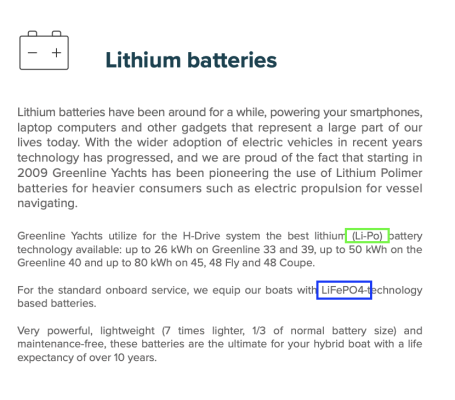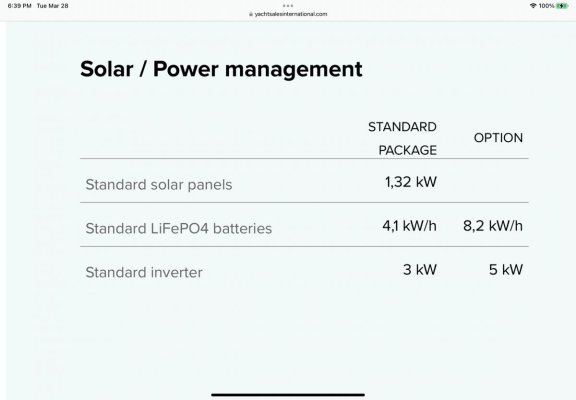Croix du Sud
Veteran Member
- Joined
- Jul 23, 2021
- Messages
- 44
- Vessel Name
- Croix du Sud
- Vessel Make
- Grand Banks 36 Europa # 842
Hi all
Just an info. Two Greenline 39 are homeported in Bandol, next to me. One is 2017 built and suffered a battery collapse in summer 2021 after 4 years of service. The other one is 2018 built and had a similar mishap week past, after 4 years too (one battery element inflated with severe hydrogen diffusion leading to vacate the boat).
In both cases, the local dealer denied any responsibility despite these lithium batteries are covered by a 10-year guarantee.
Furthermore, Replacement batteries banks were unavailable (for the summer boating season, I mean). And cost is killing.
Did any of folks hear about such problems ?
Thanks for reading
JeanL
Just an info. Two Greenline 39 are homeported in Bandol, next to me. One is 2017 built and suffered a battery collapse in summer 2021 after 4 years of service. The other one is 2018 built and had a similar mishap week past, after 4 years too (one battery element inflated with severe hydrogen diffusion leading to vacate the boat).
In both cases, the local dealer denied any responsibility despite these lithium batteries are covered by a 10-year guarantee.
Furthermore, Replacement batteries banks were unavailable (for the summer boating season, I mean). And cost is killing.
Did any of folks hear about such problems ?
Thanks for reading
JeanL



